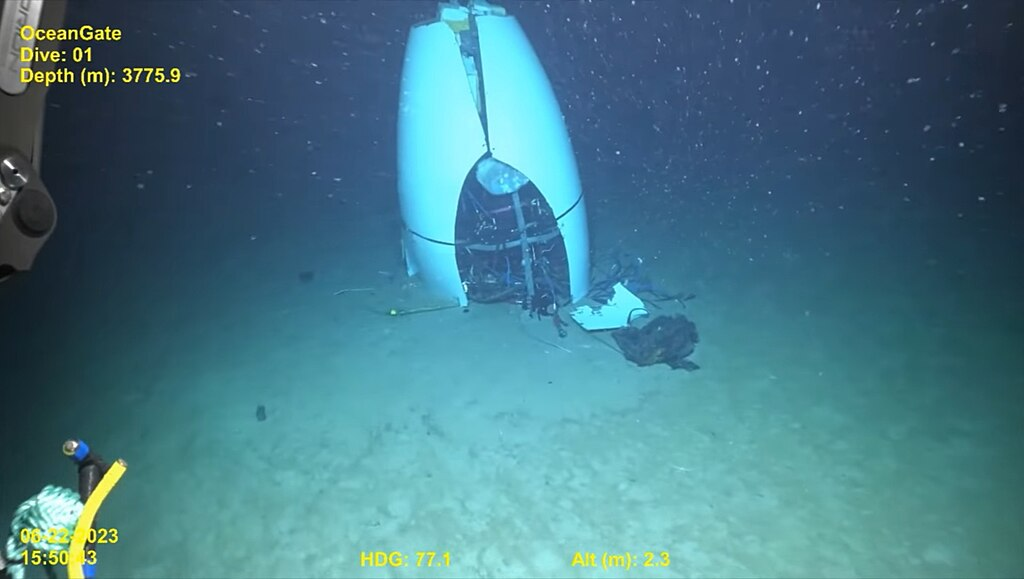467

An image of TITAN submersible tail cone at the ocean floor. Image taken by Pelagic Research Services 6000, a remotely operated vehicle (ROV). Photo: United States Coast Guard




